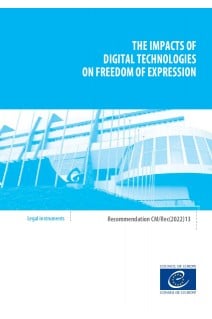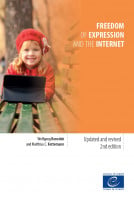Freedom of expression, as protected by Article 10 of the European Convention on Human Rights, is not only a fundamental individual right. It is also a means to protect and enhance democracy and other rights through open and public debate. Digital technologies can and indeed must support this right and serve this purpose.
The Guidelines appended to the Recommendation are designed to assist States and public and private actors, in particular internet intermediaries, as well as media, civil society organisations, researchers, educational institutions, and other relevant actors in their independent and collaborative efforts to protect and promote freedom of expression in the digital age.
The Guidelines formulate principles aimed at ensuring that digital technologies serve rather than curtail such freedom. They also provide recommendations on how to address the adverse impacts and enhance the positive impacts of the widespread use of digital technologies on freedom of expression in human rights compliant ways.
RECOMMENDATION CM/REC(2022)13
Guidelines on the impacts of digital technologies on freedom of expression
Scope and definitions
Foundations for human rights-enhancing rule-making
Digital infrastructure design
Transparency
Accountability and redress
Education and empowerment
Independent research for evidence-based rule-making





